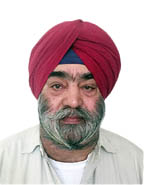
The Ministry of External Affairs and the Odisha Government are patting their backs for the “overwhelming success” of the just concluded biannual event for the elite of the Indian Diaspora.
The three-day Pravasi Bharatiya Divas held at a specially erected tented township at Janata Maidan in Bhubaneswar, the capital of Odisha, not only saw 27 eminent members of the Indian Diaspora drawn from 24 countries being honored with Pravasi Bharatiya Samman Awards, but also witnessed concerted efforts by the NDA government in projecting “Viksit” (developed) Bharat by 2047, the centennial year of India’s independence.
Overall, delegates were appreciative of the arrangements made for the smooth conduct of the convention. Odisha government put its best foot forward to attract Foreign Direct Investment in various areas, specifically in mining and tourism sectors.
“Focus was rightly more on the projection of India as an emerging economic power but at the same time, the other party in the convention, the Diaspora, was left wondering at its shrinking space in the bilateral convention,” commented a number of delegates from the USA, Australia, and the UK.
They held that the reason for the decreasing participation of delegates from the West or the developed nations was the changing mandate of the convention. Instead, this time some of the Asian nations, including Mauritius, Oman, Qatar, UAE, Malaysia, and a few African nations constituted more than two-thirds strength of all delegates.
The focus was more on showcasing the progress the country has made during the present NDA regime in various fields, including technology. It also provided a platform for the Odisha government to showcase to the world the “investment opportunities” it offers in various fields in general and tourism in particular.
It was in 2002 that the then BJP-led NDA government under the stewardship of Atal Bihari Vajpayee endorsed the recommendation of the LM Singhvi Committee report, and the Pravasi Bharatiya Divas convention was launched.
This mega event was originally planned to act as a bridge between the overseas community and the Union Government in making them partners in the overall development of India as a “new economic” power. It was mandated to provide a platform for the exchange of views on the issues facing the country and its Diaspora worldwide.
Of late, feel the delegates, the NDA government has been hijacking the agenda of this mega event by projecting its policies and programs. Issues and problems facing the Diaspora are gradually getting pushed to the periphery. Even individual or institutional achievements of the overseas community are getting marginalized. The only consolatory component of the biannual convention is the felicitation of the elite of the overseas community.
In the 2025 PBD 27 such personalities and institutions who have made a mark in community service; business, trade, and industry; science and technology; education and academics; politics; environment; healthcare and medicine; and art, culture and literature were celebrated by the President, Droupadi Murmu. Some areas, like sports, where members of the Indian Diaspora have made laudable singular and collective achievements, are still to get recognition through Pravasi Samman awards. Of the nearly 300 overseas Indians honored till now, not even a single sportsperson figure in the list. Monologues have replaced dialogues. Even the participation of youth and women, too, has shown a decline. This is in spite of the fact that the first day of the convention remains committed to youth development and its connectivity to the roots.
Of late, leaders in science, technology, research, business, trade, industry, and other areas have started skipping this convention. Even some of the political bigwigs, including the first Great Britain Prime Minister of Indian descent, Rishi Sunak, and the first woman US Presidential candidate, Kamla Harris, did not find mention in the event designed specifically for the likes of them.
Interest in the States, too, has been diminishing in the PBD. In the initial editions, the States used to celebrate their “days” by showcasing the progress they have made since independence while offering attractive investment opportunities to major industrial, business, financial, hospitality and tourist industry giants. Instead, the focus now veers on the host State only.
Odisha, too, has joined the select band of States which have named a nodal minister as a one-man authority or single window clearance procedure to facilitate investments. The earlier practice of various States putting up special stalls and making their senior officials available to participating delegates has been discontinued.
Though the chief guest at this biannual mega convention is normally a Head of a state of Indian descent, participation of other overseas politicians of Indian descent has diminished.
Many delegates held that the programme needs a revisit and redesign to meet the rapidly changing requirements of the of the nearly 36 million strong overseas Indian community. India, they say, remains the single largest source of both skilled and unskilled manpower and contagious issues related to identity and globalization need to be addressed more aggressively.
Some developed nations like the USA, Canada, Great Britain, Australia, and New Zealand, acknowledged as top favorite destinations for Indian youth, including students, are making rapid changes to their immigration policies and programs because of which there hangs a sword of uncertainty, and their apprehensions of “deportation” from the countries of their present abode need to be taken up more seriously at the events like PBD.




Be the first to comment